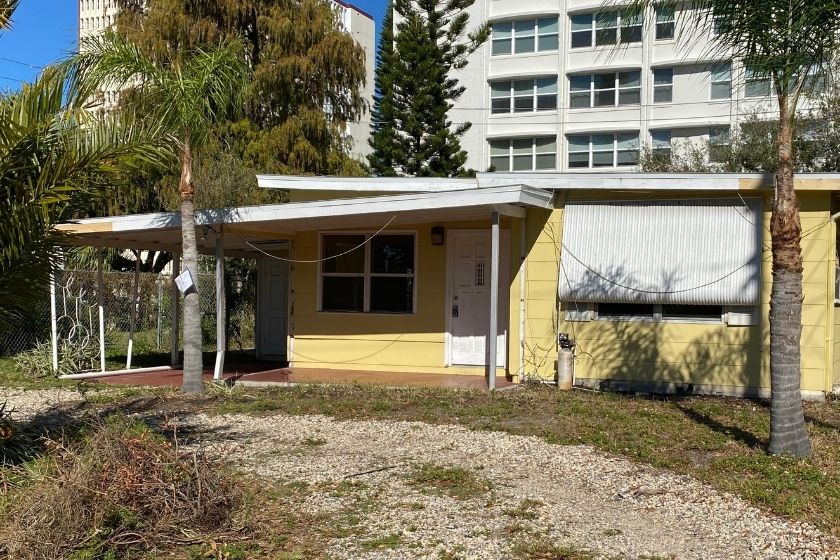David Simkins Understands the Power of Tech-Driven Real Estate
Understanding the Low Housing Inventory in 2023
The real estate market is a delicate balance of supply and demand. When there are a limited number of homes available for sale or the housing inventory is low, the demand is higher than the supply. This is the makeup of a seller’s market and typically also involves higher sales prices and fewer days on the market. As a result, the sellers tend to have the upper hand.
The 2023 Housing Shortage
Currently, there is a low housing inventory in the real estate market. By one account, 2023 housing inventory is 46% below the historical average that dates all the way back to 1999.1 The usual summer buzz in the housing market didn’t help much either. Most real estate industry experts agree that a balanced housing market is comprised of four to six months of inventory. Unfortunately, June only had a 3.1-month supply of homes, and July wasn’t much better with a 3.3-month supply.1
With the colder months around the corner and people traditionally not wanting to move during this time, the housing inventory shortage looks to be a problem that will roll over into 2024.
Why Is There a Housing Shortage in 2023?
The low housing inventory in 2023 is the result of a few different factors including:
- Mortgage rates
- Lack of new home construction
- Remote work
One big issue surrounding the U.S. housing shortage is mortgage rates. Currently, mortgage rates have been hitting historic highs at around 6.5% and 7%. Compared to the historic lows of the pandemic that were sometimes below 3%, these new rates are causing serious problems.2 Homeowners who bought during the pandemic and locked in such low rates are now victim to “golden handcuffs.” If they sell, they would be giving up their low rate and likely increasing their monthly mortgage payments significantly.
Another factor impacting the 2023 housing shortage is new construction. New construction of homes dropped significantly with the 2008 housing bubble burst and again during the pandemic. Both times, the construction of new homes took some time to recover but was unable to keep pace with demand. Pandemic-related supply chain issues haven’t helped either as some construction projects become stalled waiting for supplies.
The pandemic may have had another secondary effect on the low housing supply. With remote work becoming more of a norm, people were able to find housing in cheaper locations farther away from their offices. Many people also no longer need to relocate and move for a new job. Instead, they can continue to stay put where they are.
What a Housing Shortage Means for Buyers
The limited housing supply in 2023 has made finding their dream home a lot more challenging for buyers. The limited supply of homes leads to increased competition among potential buyers. Consequently, housing prices have increased, and some buyers could find themselves in a bidding war. This combination of factors has made housing much less affordable and kept some buyers from even entering the market.

What Buyers Should Do in A Housing Shortage
- Act fast — If you really love a home or want to get a tour, you may need to act quickly. If you wait too long, you might miss your opportunity.
- Compromise — With home prices high, mortgage rates high, and a limited number of homes available, you may need to make some concessions on location, size, or other features to find and secure a home in your price range.
- Be Prepared — Especially if you are less inclined to compromise, it may take longer to find your dream home. Be prepared to search for a longer time and potentially have rejected offers.
What a Housing Shortage Means for Sellers
Traditionally, a limited housing supply is associated with high sales prices and fast sales. Some homes may even get multiple offers over the asking price. This is all good news for sellers, but there is a catch. Although there is a housing shortage, buyers still aren’t willing to settle for any old home on the market.
According to our survey, 77% of buyers won’t consider buying a home that isn’t move-in ready.3 This strong preference is in part due to the fact the limited number of houses on the market has driven up sales prices. As a result, buyers are already hitting the ceiling on their budget and do not have the extra money to make repairs or updates on a home. For sellers, this means they may need to change their strategy.

What Sellers Should Do in A Housing Shortage
- Fix Up Your Home — Just because there are fewer homes available on the market, it doesn’t mean your house will sell in a jiffy. If you want to ensure it does, you need to make it market-ready. Repairs and some basic listing preparation can go a long way to helping your home sell for the highest price and quickly.
- Set Your Expectations — The hot market of the pandemic is mostly a thing of the past. Although there is a housing shortage, you may still need to make concessions on the sale, and your house may still be on the market for longer.
What It Means for Agents
The 2023 low housing inventory presents its own set of challenges for real estate agents and brokers. Buyers and sellers could both use a little guidance, and as their agent or broker, it is your job to help them navigate the market.
Advice for Agents in the 2023 Housing Shortage

- Manage Clients’ Expectations — A limited supply of housing makes the market hard for buyers. On the other hand, some sellers are still in the pandemic mindset and believe they can sell a home as-is and get their house off the market quickly. Make sure your clients know what to expect, so they do not end up disappointed.
- Price Accurately — Helping your seller price their home accurately is key. The last thing you want is to keep having to drop the price. Instead, try these price reduction strategy alternatives.
- Encourage Pre-Sale Updates — Move-in ready homes sell. Fixer-uppers sit on the market. Get your sellers to make necessary pre-sale updates so their homes sell quickly, and you can do more business.
- Offer a Solution — A lot of buyers are hesitant to make pre-sale updates or simply don’t have the money upfront to do so. A pay-at-closing concierge service like us helps them get over these hurdles. Offer this service to your clients. You may also find that you win more listings even thought fewer homes are up for sale.
While the low housing inventory in 2023 has added some challenges to the current real estate market, it doesn’t mean you can’t find success. For sellers and agents, we may be able to help. At Curbio, we help homeowners fix up their homes before putting them on the market without any upfront costs. Instead, you can sell your house faster and for more without paying for any home improvement costs until closing. Talk to your agent today about partnering with us or we may be able to connect you with a real estate agent in your area. Just get started with a free estimate.
Sources:
- Forbes (2023). Housing Market Predictions For 2023: When Will Home Prices Be Affordable Again?
- The Mortgage Reports (2023). Mortgage Rates Chart: Historical and Current Rate Trends
- Curbio (2022). Preparing to Sell: 2022 Home Improvement Report





